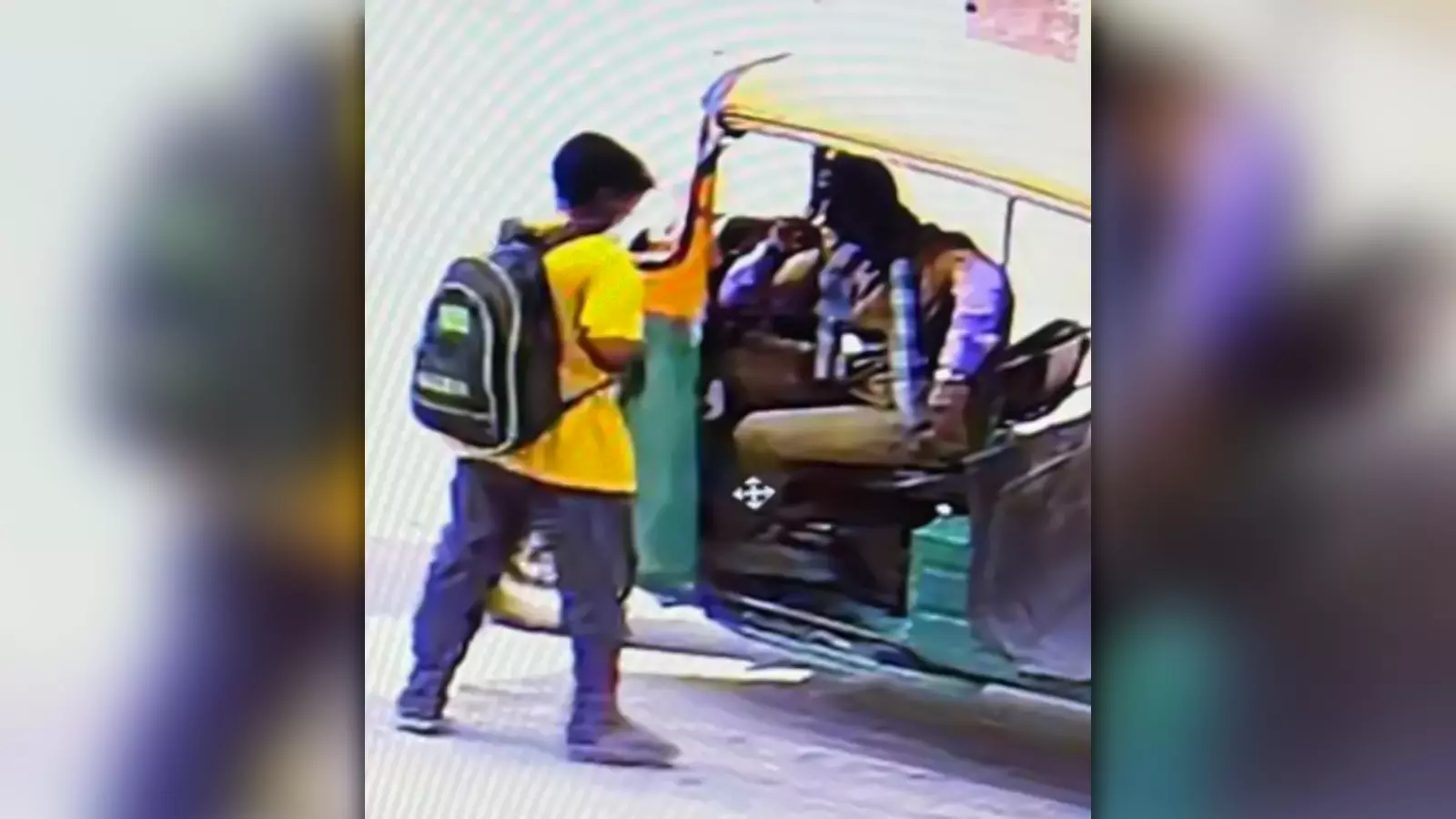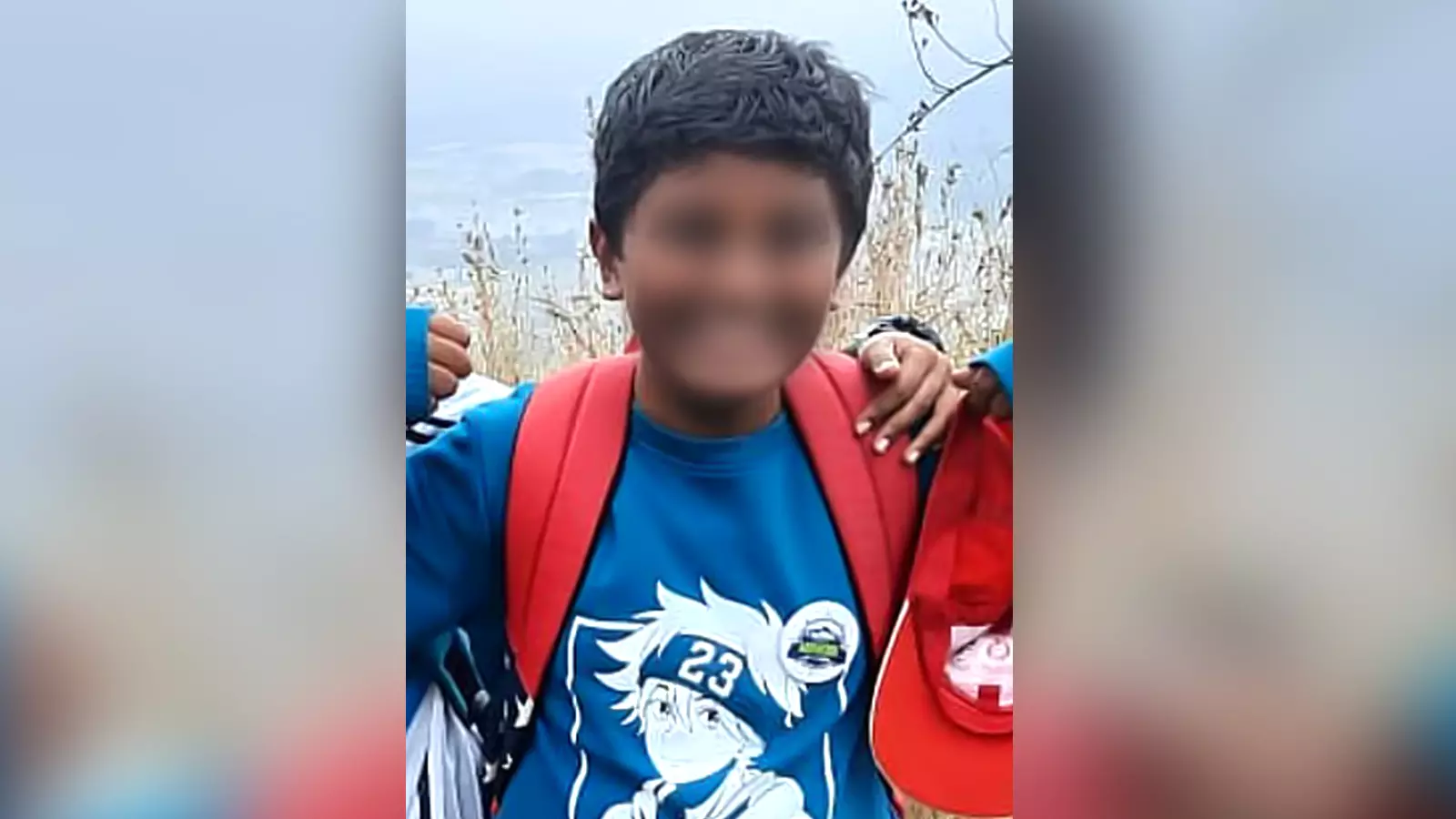
- Home
- India
- World
- Premium
- THE FEDERAL SPECIAL
- Analysis
- States
- Perspective
- Videos
- Sports
- Education
- Entertainment
- Elections
- Features
- Health
- Business
- Series
- In memoriam: Sheikh Mujibur Rahman
- Bishnoi's Men
- NEET TANGLE
- Economy Series
- Earth Day
- Kashmir’s Frozen Turbulence
- India@75
- The legend of Ramjanmabhoomi
- Liberalisation@30
- How to tame a dragon
- Celebrating biodiversity
- Farm Matters
- 50 days of solitude
- Bringing Migrants Home
- Budget 2020
- Jharkhand Votes
- The Federal Investigates
- The Federal Impact
- Vanishing Sand
- Gandhi @ 150
- Andhra Today
- Field report
- Operation Gulmarg
- Pandemic @1 Mn in India
- The Federal Year-End
- The Zero Year
- Science
- Brand studio
- Newsletter
- Elections 2024
- Events
A missing boy, a social media hunt and a family’s loss of privacy

When a 12-year-old boy from Bengaluru went missing recently, good Samaritans on social media got together to find him. A parallel hunt along with the police started in the virtual world. The anxious parents of the student divulged every detail of their son online, including when his image was last captured by a close-circuit television or CCTV (as provided by the police).The family was...
When a 12-year-old boy from Bengaluru went missing recently, good Samaritans on social media got together to find him. A parallel hunt along with the police started in the virtual world. The anxious parents of the student divulged every detail of their son online, including when his image was last captured by a close-circuit television or CCTV (as provided by the police).
The family was desperate and wanted him back home. So, they shared as many particulars as possible to help trace their son. In the process, experts fear they revealed too much and some sensitive aspects of their lives.
The social media feeds regarding the boy with his photographs went viral. In a few hours, the search started in India’s IT hub, spread across the country.
A virtual search saga
Everyone did their best by sharing and posting information about the boy on various social media platforms. The family of the missing boy was in distress and social media notifications appealed to the conscience of the public. The online community shared the family's grief and put its social media capital to good use in finding the boy. Moreover, it does not take much to share information online, it is just a click of a button.
They all shared the poster of the boy with his picture and his parents’ phone numbers online. Their effort bore fruits. In three days, the boy was found by a Bengaluru woman who went to neighbouring Hyderabad for work.

The missing boy caught on CCTV camera.
Everybody heaved a sigh of relief and thanked social media for helping the boy reunite with his family. At a time, when hate-filled and divisive messages have become preponderant on our social media feeds, such a piece of positive news reaffirms our belief in humanity.
Is online sharing always caring?
“On the surface, the story had a happy ending. However, if we scratch a bit, the episode raises various unaddressed questions —some being unsavoury and frightening. The main being—what about the boy?” asked Nagasimha Rao, a Bengaluru-based child rights activist.
"At the tender age of 12, his life has become a public spectacle. There is an ongoing social media scrutiny of the boy. The netizens are speculating the reasons behind his decision to leave his home.
"Some have blamed the parents for badgering their son to excel in his academics. Others made fun of the boy and passed sarcastic comments about him being 'brave' for leaving his home and travelling to another city. We don't know the truth. Nobody thought for a second that he was a 12-year-old boy. His age makes him very vulnerable. He can't speak for himself and everyone spoke on his behalf. The boy needs to be left alone," added Rao.
Child rights activists in Bengaluru say the 12-year-old needs immediate counselling and privacy.
Everyone including cyber experts, psychologists, teachers and police officials The Federal spoke with appreciated the efforts of netizens to help the boy and his family as the dire situation demanded so. However, they strongly championed the cause of being respectful of everyone's privacy and safety—be it online or offline.
“The campaign started in earnest but it took a different turn. We need to understand the pros and cons of the virtual world. We can't feed the social media content beast at the expense of a child. Imagine the mental trauma he is experiencing after reading about himself online. He might become a target of ridicule by his friends as children these days have internet access,” said Anuradha Singh, a teacher from Bengaluru.
Right to privacy: The million-dollar question
Shijil TV, president of Free Software Movement Karnataka (FSMK), said that people in general irrespective of their academic and professional qualifications are unaware of the basic essence of the right to privacy. “I don't want to blame the parents or social media users for sharing pictures, videos and other related information about the child. They wanted to find the boy. During that time, they probably did not think about the after-effects of circulating so much personal information online. This highlights a lack of awareness and understanding privacy among the public.

Every detail of the missing boy and his family has been shared online by social media users.
“There are voluntary wings of the police that guide people through sharing information online. There are cyber protocols that need to be followed to avoid misuse of personal data. However, there is no proper guideline to suggest when the privacy aspect outweighs the actual situation,” he added.
FSMK is a registered not-for-profit organisation. It spreads awareness about free software technologies among different strata of society.
The right to privacy is a fundamental right. It is a right which protects an individual from interference from both the state and non-state actors and allows an individual to make autonomous life choices. The right to privacy is protected as an intrinsic part of the right to life and personal liberty under Article 21.
The August 2017 unanimous judgment by the Supreme Court of India in Justice KS Puttaswamy (Retd) versus Union of India case is considered a “resounding victory for privacy”. The ruling was the outcome of a petition challenging the constitutional validity of the Indian biometric identity scheme Aadhaar.
Shijil said that individuals have the right to say no to sharing their private information even during a police interrogation. “Unfortunately, we are gladly giving away our phone numbers and email IDs during our visit to malls and cinema halls. We need to be educated about how much information could be divulged depending on the situation. Generally, we don't respect privacy—be it of others or our own. It makes internet use a sensitive matter. The media can play a big role in spreading awareness about privacy rights with the rise in the number of internet users,” he added.
No safety net for rising internet users?
According to estimates, India had over 1.2 billion internet users across the country in 2023. This figure is likely to grow to over 1.6 billion users by 2050. India was ranked as the second-largest online market worldwide in 2022. China is the biggest online market across the globe.
Cyber experts say that there is no way to completely erase digital footprints. Once information is shared online, it gets archived. Cybercriminals and hackers feast on these details to scam and threaten less tech-savvy users. In the case of the Bengaluru boy and other similar episodes, one could only hope that people lose interest in them to end an intrusion into their private spaces. One can always report their grievances on National Cyber Crime Reporting Portal.
Along with the social media scrutiny of the 12-year-old student, his parents are still getting calls from across India to know about his well-being.
To put an end to "the virtual drama", Bengaluru-based NGO, Child Rights Trust, has suggested the parents of the boy to change their phone numbers and put an update on social media platforms that since the boy has been found, the family would like to have their privacy.
The missing link about missing children
The latest annual report of the National Crime Records Bureau or NCRB — ‘Crime in India’ — released in December last year stated that 83,350 children went missing in India in 2022.
Experts say abduction is the primary cause of missing children. Besides, children run away from their homes due to unhealthy environments.
Shilpi Saraswat, clinical psychologist at Sakra World Hospital Bengaluru, said children leave their families when they no longer find their homes safe. “Children need a safe space and freedom. These days, there are a lot of unrealistic expectations from students to excel in academics, especially in the urban milieu. It puts undue pressure on them,” she added.
Saraswat suggested that parents and teachers should have an open and non-judgemental dialogue with children to help them get rid of any doubts and fears. “We need to teach our children to deal with failures. We should instil healthy competition among them. It is high time for all schools to have counsellors to deal with various issues related to students.”
